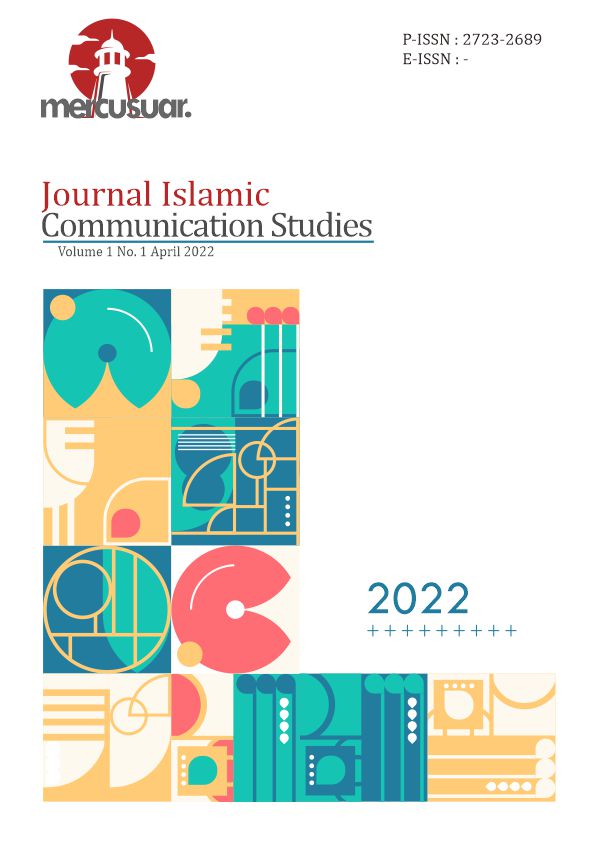The Message of Dakwah on Teka Ra Ne'e Culture in Wedding Ceremony in Parado Sub-district, Bima Regency
Abstract
The main message of Islamic preaching found in the Teka Ra Ne'e culture during wedding ceremonies in Parado District, Bima Regency is the focus of this qualitative descriptive research, which employs sociological, phenomenological, and cultural preaching approaches. Primary and secondary data sources were used, and data collection methods included observation, interviews, and documentation. Data analysis techniques included data reduction, data presentation, comparative analysis, and conclusion drawing. The results show that the development of Teka Ra Ne'e culture in wedding ceremonies in Parado District, Bima Regency is categorized as developing, but this development does not reduce the cultural or traditional values that have been carried out in the past. This culture is generally practiced voluntarily. However, over time, the culture has shifted in terms of values. This is evidenced by the community's activity, which requires a reciprocation system. This reciprocation system refers to the reciprocity of assistance between the needy and the local community. Furthermore, the Teka Ra Ne'e culture in the Bima community, especially in Parado District, has shifted into an arisan (community saving) system. The Teka Ra Ne'e procession during wedding ceremonies in Parado District, Bima Regency consists of several stages, namely: (1) Panati, the initial process for the male's family to know whether the female is still single or already engaged; (2) Nuntu co'i/Lamaran, a meeting between the two families to discuss the dowry that will be brought by the male's family to the female's family; (3) Mbolo Keluarga, a meeting to prepare for the "karawi" time by the male and female families; (4) Kalondo Fare, an activity where the community brings rice to the family who is holding the wedding party; (5) Wa'a Co'i, where the male's family brings the agreed dowry to the female's family; (6) Ngaji Nika, the process of bringing rice and cakes to the family who is in need, and at night there will be a religious recitation and sermon accompanied by Islamic songs called "marawis"; (7) Akad Nikah, the male and female families perform the marriage solemnization ceremony in the Office of Religious Affairs (KUA), mosque or prayer room, or at the female's residence; (8) Wedding Party, congratulations are given to the newlywed couple as a husband and wife; and (9) Jambuta, congratulations are given to the newlywed couple by guests who have not had the chance to attend the afternoon or wedding party, and it is done at night. Therefore, the Islamic preaching messages in the Teka Ra Ne'e culture during wedding ceremonies in Parado District, Bima Regency include the messages of Aqidah (Islamic creed), Sharia (Islamic law), and Akhlaq (Islamic ethics) in the procession.


